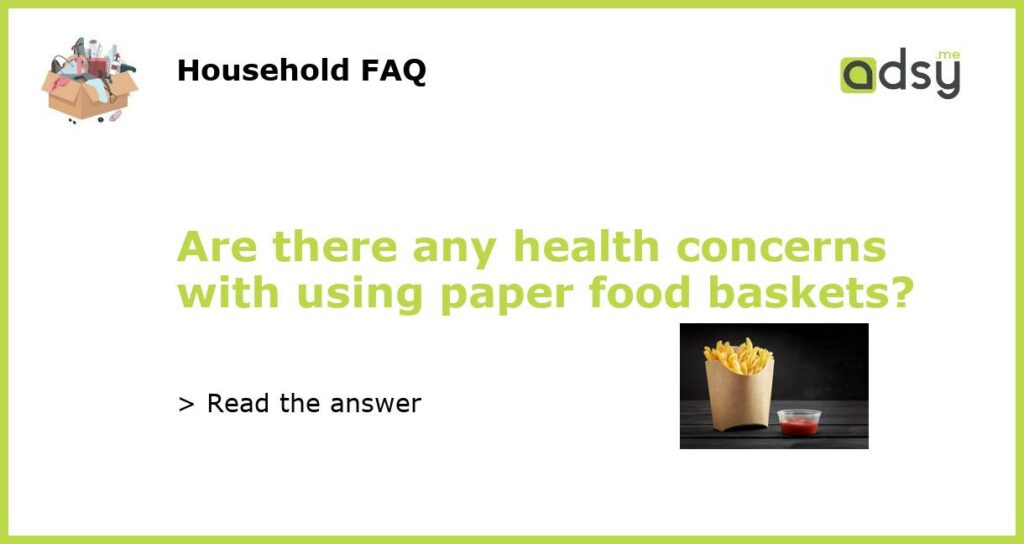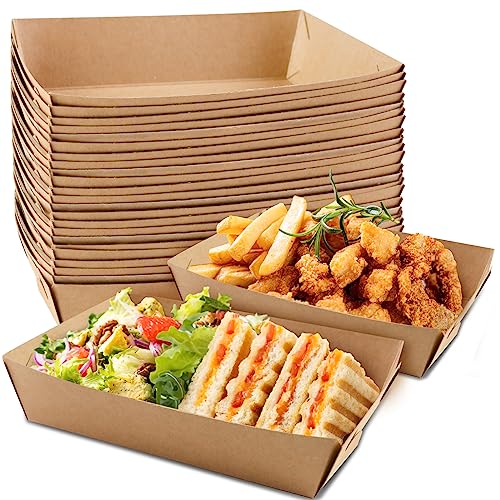The Rise of Paper Food Baskets
Over the past few years, there has been a significant increase in the use of paper food baskets in restaurants, food trucks, and other food service establishments. These containers are not only practical and cost-effective but also environmentally friendly. However, with the growing popularity of paper food baskets, concerns about their impact on health have started to emerge. Are there any health concerns associated with using these containers?
Chemicals in Paper Food Baskets
Paper food baskets are typically made from paperboard or cardboard materials that are coated or lined with various chemicals to make them resistant to grease and liquids. Some of the common chemicals used in these coatings include perfluoroalkyl substances (PFAS) and phthalates.
PFAS are a group of man-made chemicals that have been linked to various health concerns such as decreased fertility, thyroid disease, immune system disorders, and an increased risk of certain cancers. Phthalates, on the other hand, are a group of chemicals that are used as plasticizers to make plastics more flexible. They have been associated with disruptions in hormonal balance and reproductive issues.
Potential Health Risks
While the use of these chemicals in paper food baskets can help improve their functionality, there is a concern that they can migrate from the packaging into the food, especially when exposed to heat or acidic conditions. This raises questions about the potential health risks associated with consuming food packed in these containers.
Studies have shown that PFAS and phthalates can leach into food from various types of packaging materials, including paper. In a study published in the journal Environmental Science and Technology, researchers found that PFAS levels were higher in food samples wrapped in paper packaging compared to those wrapped in plastic or other materials.
Regulatory Framework and Consumer Awareness
Regulatory authorities play a crucial role in setting limits and guidelines to ensure the safety of food packaging materials. In many countries, including the United States and European Union, there are specific regulations in place to limit the use of certain chemicals in food contact materials.
However, it is important to note that these regulations may vary from country to country, and there are still gaps in the regulation of chemicals used in food packaging. For instance, in the United States, PFAS are not regulated specifically in paper food containers, while phthalates are regulated in certain plastic food contact materials.
Consumer awareness is another important factor when it comes to addressing health concerns related to paper food baskets. By educating consumers about the potential risks and providing information about alternative packaging options, individuals can make informed choices and put pressure on manufacturers to prioritize health and safety.
Mitigating the Health Risks
There are several steps that can be taken to mitigate the potential health risks associated with using paper food baskets. Firstly, restaurants and food service establishments can opt for alternative packaging materials that are free from harmful chemicals. Some options include plant-based or compostable materials that do not require chemical coatings.
In addition, it is important to handle and store paper food baskets properly. Avoid exposing them to high temperatures or acidic foods for prolonged periods, as these conditions can increase the likelihood of chemical migration into the food.
Finally, ongoing research and collaboration between regulatory authorities, manufacturers, and scientists are essential in ensuring the safety of food packaging materials. This includes monitoring and updating regulations, conducting more studies on the migration of chemicals from packaging to food, and developing alternative solutions that are both safe and sustainable.






